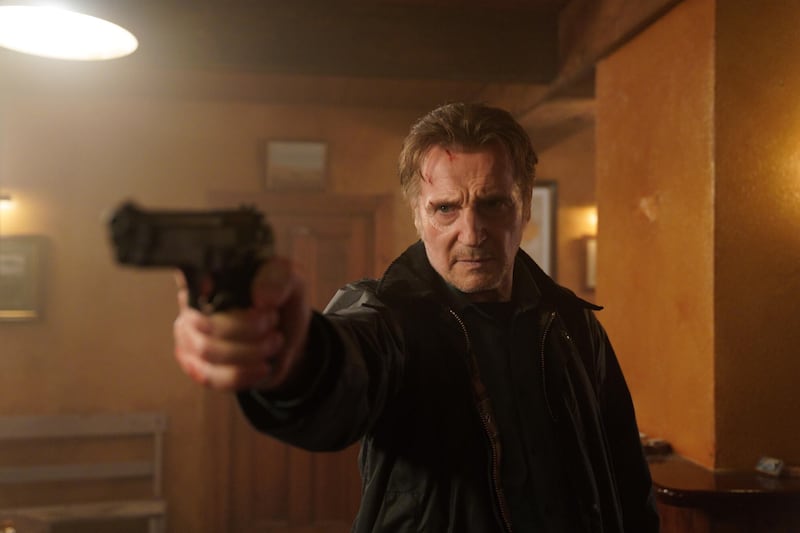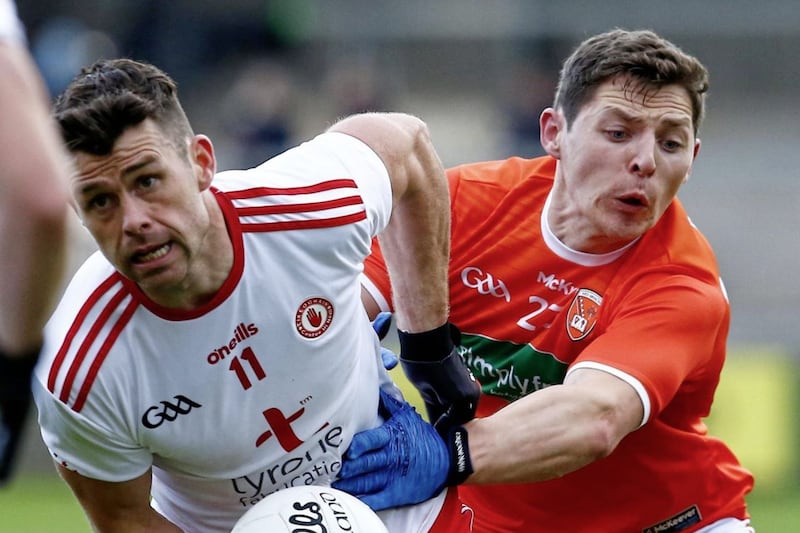IT is coming up on four weeks since Donegal’s tumultuous season got worse with defeat to Down in the Ulster Championship.
Since then, the Donegal public haven’t heard a word uttered by anyone from the camp.
For most counties, that would be nothing unusual.
In the current climate, media access has become largely restricted to post-match interviews and promotional gigs run by Croke Park or the provincial councils.
But that Aidan O’Rourke not hosting a press briefing was even worthy of note is an indication of what a Donegal manager faces.
A short piece published on the Donegal Live website read that local media had been issued with a short statement saying that O’Rourke “has opted not to have a media briefing ahead of the Clare game”.
No other county in Ulster, and perhaps Ireland, would have issued such a memo because very few have such briefings on any regular basis.
It’s not that the media in Donegal are any more or less critical of county setups than anywhere else. It’s just that there are so many of them, and each of them naturally wants their own slice of the pizza.
GAA has exploded as a driving force for the local media since the first All-Ireland success in 1992, and was given a diesel injection when they repeated the feat 20 years later.
The geographical spread of the county creates room for different strands of media to co-exist.
Under one umbrella, Iconic Media, there are five newspapers printed weekly – the Inish Times, Donegal Post, Letterkenny Live and two editions of the Donegal Democrat. It was six until just a few weeks ago, when the People’s Press closed.
The Donegal News is a significant player, while the involvement of Ryan Bradley and Darach O’Connor in 2012 and 2014 respectively helped reignite interest in Inishowen.
They have the likes of Conor O’Donnell, Caolan McColgan and Caolan McGonigle on the team now, and that drives coverage from the Inishowen Independent.
Like the rest of the world, they’ve all moved online. Donegal Live is the digital wing of the Iconic group.
Donegal Daily, a completely separate entity, had for a while a sporting site called DonegalSportHub, but after a successful launch period it proved unsustainable.
There are even smaller local print outlets like the Finn Valley Voice and Tír Chonaill Tribune.
Then you have two local radio stations, Highland Radio based in Letterkenny and Ocean FM predominantly looking at things in south Donegal, both of whom have popular weekly podcasts hosted by Brendan Devenney and Paddy McGill respectively. There’s also Raidio na Gaeltachta with a decent listenership in a strong Gaelgeoir county.
Read more: A county in turmoil: The inside story on Karl Lacey's departure from the Donegal Academy

Throw in national journalists like Keith Duggan (Irish Times, though no longer on sport), Kieran Cunningham (Irish Star), Mark Gallagher (Irish Daily Mail) and Jason Byrne (Irish Sun), Donegal-based Kerry native Micheal Clifford (Irish Daily Mail) a newly-uncovered punditry gem in Michael Murphy and then the rest of the country’s media as they dip in and out, no other county is as well-served when it comes to publicity for Gaelic Games.
The other side of it can be that they become like bald men fighting over a comb.
When Declan Bonner was in charge, he tried to move away from the semi-regular midweek briefings that had been running from Jim McGuinness’s time.
“The week of games I could get anything up to 10, 15 phone calls from different journalists.”
A few months in, he relented and followed the template laid down by his predecessors.
“I decided then, we took one hour out on a Wednesday, got them all into one room and got our interviews there. I understand too, it’s a living for these guys and they have to do it, and that they do promote games within Donegal and that’s important.
“I have to see it from all angles, but it’s difficult alright, we have so many involved in it.”
Even then it could take a while to get through it, between a roundtable session with print journalists and then individual pieces for radio.
The other interesting dynamic is that many of the people involved in the media world in Donegal are the same people that have stood on the other side of the white line.
When Bonner retired from playing, he became Donegal manager virtually straight away in the late ‘90s. When he stepped down from that, he took into co-commentary on games for Highland Radio.
He also began writing a newspaper column for the Donegal News that continues to run to this day.
Bonner kept the column up right through his second spell as manager, which ended last year.
Brian McEniff still has a weekly column in the Democrat.
Jim McGuinness writes for The Irish Times during peak season. The Glenties man might have been viewed as militaristic in many quarters in terms of how he guarded secrets from the camp, but even he would occasionally invite the local media to training sessions, conscious of the need to harbour good relations.
Between them, McEniff, McGuinness and Bonner have been in charge of Donegal for each of the ten Ulster titles and two All-Irelands the county has won in its history.
Martin McHugh, although he controversially never got the opportunity to manage his native county, has been a prominent figure in the county whose profile was amplified by his punditry roles with BBC and RTÉ across three decades. He is still a regular presence in press boxes and on the airwaves in Donegal.
“I don’t mind anyone that walked in those shoes and has been there or crossed over that white line in the heat of championship battle. If they have an opinion, that’s fair enough,” says Bonner.
“The mainstream media here in Donegal, some of them are about a long, long time and a lot of them are genuine Donegal supporters that just want to see the best for the county.
“I’d be well used to it, I’m about long enough now to know how it operates. I never really had an issue with the mainstream media or nationally for that matter.
“I didn’t always agree and I let that be known when I needed to but that’s the way it operates.”
In between their successes, there have been major national headlines from the controversial departure of Brian McIver through Jim McGuinness being overlooked for the job and the Kevin Cassidy and Karl Lacey affairs, all stories broken or led by Donegal outlets.
Part of that is driven by their own internal competition with each other, which in turn creates the sense of an eternal feeding frenzy.
The local beat is a tough gig. For the media it’s a fine line between staying onside and being seen as credible by their audience.
Donegal’s media have never just genuflected at the altar.







